
The Indian Institute of Technology Bombay is a public research university and technical institute in Powai, Mumbai.
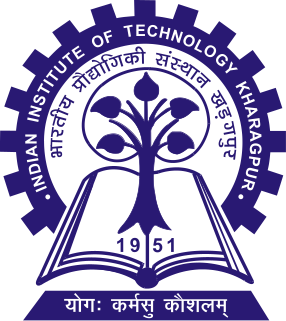
Indian Institute of Technology Kharagpur is a public research university established by the government of India in Kharagpur, West Bengal, India. Established in 1951, the institute is the first of the IITs to be established and is recognised as an Institute of National Importance. In 2019 it was awarded the status of Institute of Eminence by the Government of India.
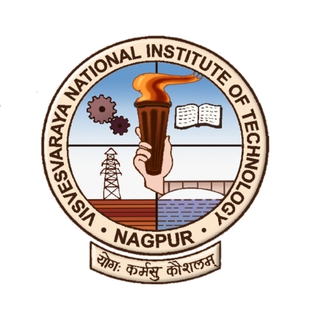
Visvesvaraya National Institute of Technology Nagpur (VNIT) is a public technical university located in the central India city of Nagpur, Maharashtra. Established in 1960, the institute is among 31 National Institutes of Technology (NITs) in the country. In 2007, the institute was conferred with the status of Institute of National Importance by the National Institutes of Technology, Science Education and Research Act, 2007 of the Parliament of India with all other NITs. Formerly known as Visvesvaraya Regional College of Engineering (VRCE), the institute is named in the honor of an eminent engineer, planner and statesman Sir M. Visvesvaraya. The Institute awards Bachelor's, Master's and Doctoral degrees in engineering, technology, architecture and science for which the entry is through the JEE (Main), GATE, JAM, CSIR-UGC NET, etc.
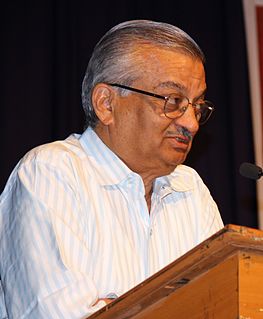
Anil Kakodkar is an Indian nuclear physicist and mechanical engineer. He was the chairman of the Atomic Energy Commission of India and the Secretary to the Government of India, he was the Director of the Bhabha Atomic Research Centre, Trombay from 1996–2000. He was awarded the Padma Vibhushan, India's second highest civilian honour, on 26 January 2009.

Computer-assisted orthopedic surgery or computer-assisted orthopaedic surgery is a discipline where computer technology is applied pre-, intra- and/or post-operatively to improve the outcome of orthopedic surgical procedures. Although records show that it has been implemented since the 1990s, CAOS is still an active research discipline which brings together orthopedic practitioners with traditionally technical disciplines, such as engineering, computer science and robotics.

The College of Technology and Engineering (CTAE), is a public engineering college located in Udaipur, Rajasthan, India. It is one of the top ranking engineering institute of the state offering varied courses in engineering.
The Marine Engineering and Research Institute (MERI), formerly known as the Directorate of Marine Engineering Training (DMET), now known as Indian Maritime University - Kolkata Campus and Mumbai Port Campus, is India's national institute and one of the institutes for the training of Marine Engineers and Polyvalent Officers.

Dharmsinh Desai University (DDU) formerly known as Dharmsinh Desai Institute of Technology (DDIT) is a state funded institution in Nadiad, Gujarat, India and was founded on 2 January 1968.

The School of Medical Science and Technology (SMST) is an educational and research institute affiliated to the Indian Institute of Technology, Kharagpur, India. Founded in 2001, the School of Medical Science and Technology brings together doctors, scientists and engineers to work collaboratively on projects for better healthcare.

Indian Institute of Technology Patna is a public technical university located at Bihta in Patna, India. It is recognized as an Institute of National Importance by the Government of India. It is one of the new IITs established by an Act of the Indian Parliament on August 6, 2008.

Indian Institute of Technology Indore is an Institute of national importance located in Indore, Madhya Pradesh, India. IIT Indore was founded in the year 2009. It was one of the eight new Indian Institutes of Technology (IITs) started by the government of India in the year 2009. IIT Indore is officially recognized as an Institute of National Importance by the Government of India.
The Indian Institutes of Technology (IITs) are central government owned public technical institutes located across India. They are under the ownership of Ministry of Education, Government of India. They are governed by the Institutes of Technology Act, 1961, which has declared them as Institutes of National Importance and lays down their powers, duties, and framework for governance as the country's premier institutions in the field of Technology. The Institutes of Technology Act, 1961 currently lists twenty-three IITs. Each IIT is autonomous, linked to the others through a common council, which oversees their administration. The Minister of Education,India is the ex officio Chairperson of the IIT Council. As of 2021, the total number of seats for undergraduate programs in all IITs is 16,234.
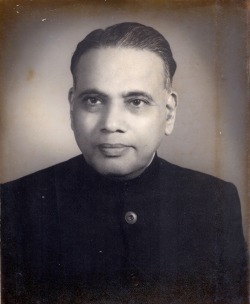
Purushottam Kashinath Kelkar (1909-1990) was an Indian scientist who is best remembered for being the founding director of the Indian Institute of Technology Kanpur, which was established in 1959. He was also involved in the planning process for the establishment of the Indian Institute of Technology Mumbai and served as its third director, for a period of 4 years. Kelkar was instrumental in securing USA's technical collaboration in the establishment of IIT Kanpur, by persuading the then USA ambassador, John Kenneth Galbraith to locate the fledgeling institution on the outskirts of Kanpur, in North India. The Government of India awarded him the civilian honour of Padma Bhushan in 1970.
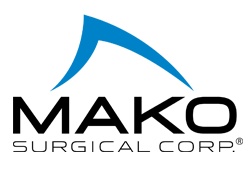
MAKO Surgical Corp. was a publicly traded medical device company based in Florida. On September 25, 2013, the Board of Directors of Mako Surgical accepted a deal to be acquired by Stryker for $1.65B. The deal closed in December 2013.
Orthopedic templating is a process wherein surgeons using either acetate templates or digital templates estimate the correct size of the prosthesis to be used in surgery. The biggest educator on the subject has been AO/ASIF. In a study published in the Injury journal published in 1998, 94% of consultants and 100% of trainees felt that planning was important but half, respectively, routinely planned fracture treatment.
Keiki R. Mehta, an Indian ophthalmologist, medical researcher and writer, is considered by many as the father of Phacoemulsification in India. He is the Chief Surgical and Medical Director at Mehta International Eye Institute, a Mumbai-based specialty eye hospital founded by him. He is known to be the first surgeon to perform a Radial keratotomy in India and is credited with the development of the first soft eye implant in the world, and the Keiki Mehta BP Valve Glaucoma Shunt, a medical implant used in the treatment of neovascular‚ congenital and uveitic glaucoma. He is a recipient of several honours including the Grand Honors Award of the National Eye Research Foundation, Chicago and the Triple Ribbon Award of the American Society for Cataract and Refractive Surgery. The Government of India awarded him the fourth highest civilian honour of the Padma Shri, in 2008, for his contributions to Medicine.
Devang Vipin Khakhar is an Indian chemical engineer and the former director of the Indian Institute of Technology, Mumbai. He is known for his pioneering researches on polymerization and is an elected fellow of all the three major Indian science academies viz. Indian Academy of Sciences, Indian National Science Academy and National Academy of Sciences, India as well as Indian National Academy of Engineering. The Council of Scientific and Industrial Research, the apex agency of the Government of India for scientific research, awarded him the Shanti Swarup Bhatnagar Prize for Science and Technology, one of the highest Indian science awards for his contributions to Engineering Sciences in 1997.
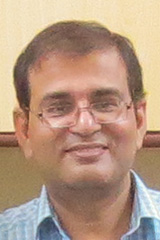
Subhasis Chaudhuri is an Indian electrical engineer and the director at the Indian Institute of Technology, Bombay. He is a former K. N. Bajaj Chair Professor of the Department of Electrical Engineering of IIT Bombay. He is known for his pioneering studies on computer vision and is an elected fellow of all the three major Indian science academies viz. the National Academy of Sciences, India, Indian Academy of Sciences, and Indian National Science Academy. He is also a fellow of Institute of Electrical and Electronics Engineers, and the Indian National Academy of Engineering. The Council of Scientific and Industrial Research, the apex agency of the Government of India for scientific research, awarded him the Shanti Swarup Bhatnagar Prize for Science and Technology, one of the highest Indian science awards, in 2004 for his contributions to Engineering Sciences.
Amit Agrawal is an Indian engineer and an institute chair professor at the department of mechanical engineering of the Indian Institute of Technology, Bombay. He leads a group of scientists who are involved in the development of next-generation diagnostic microdevices.

BETIC based at Indian Institute of Technology Bombay is an inter-disciplinary multi-institution initiative for medical device innovation. Established in 2014 with support from the government of Maharashtra, it comprises a network of 14 engineering and medical institutes across the state. The BETIC team have developed 50 medical devices as of 2019, and licensed 20 of them to startup companies or industry for mass production.














